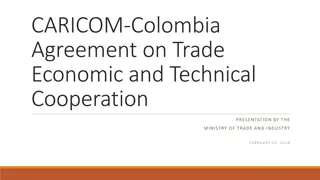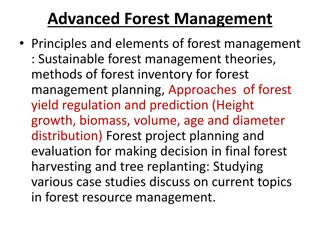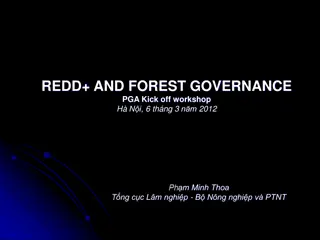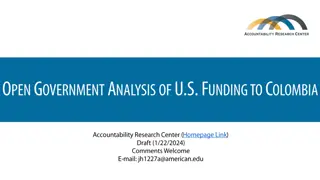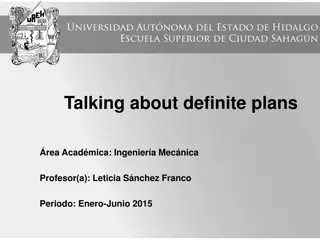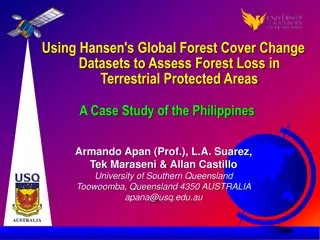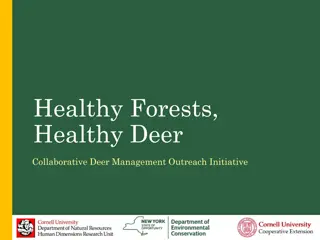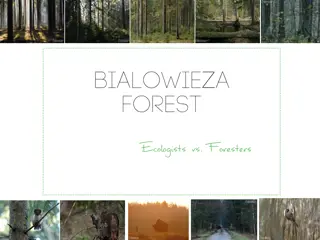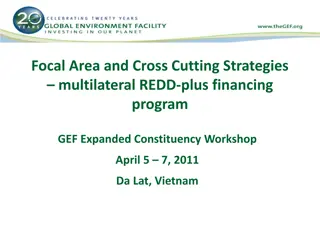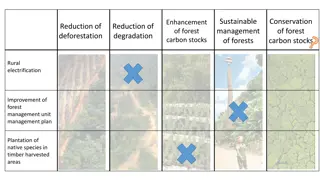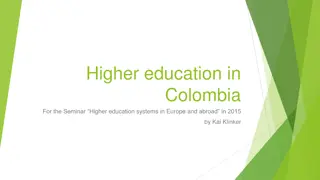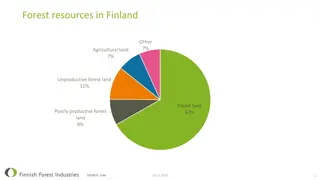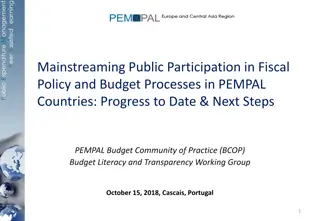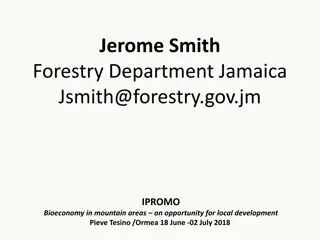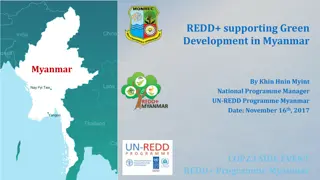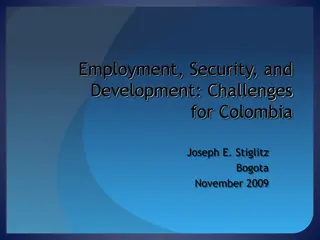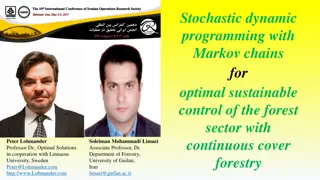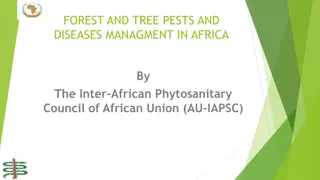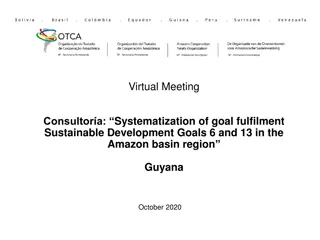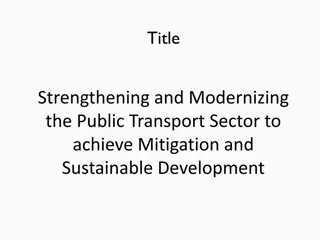Promoting Sustainable Development and Public Participation in Managing the Amazon Forest Area in Leticia, Colombia
Education for Sustainable Development in Protected Areas and Biosphere Reserves explores public participation and stakeholder involvement in the management of the Amazon Forest Area in Leticia, Colombia. The study emphasizes sustainable tourism, ecotourism, and the development of local products. Recommendations include starting an education program for sustainable management and developing new activities based on ecotourism.
Download Presentation

Please find below an Image/Link to download the presentation.
The content on the website is provided AS IS for your information and personal use only. It may not be sold, licensed, or shared on other websites without obtaining consent from the author. Download presentation by click this link. If you encounter any issues during the download, it is possible that the publisher has removed the file from their server.
E N D
Presentation Transcript
Education for Sustainable Development in Protected Areas and Biosphere Reserves Public participation and stakeholder involvement in promoting the management of the Amazon Forest Area in Leticia (CO). Maria Christakou Sermin Durdu Charline Piot Francesca Eliana Rigato
Conclusion- Recommendations Introduction Methodology Results Geographical position Short history Sustainable Tourism & Ecotourism Tourism that takes full account of its current and future economic, social and environmental impacts, addressing the needs of the visitors, the industry, the environment and the host communities. Tourism : Amacayacu National Natural Park Aims To make local products more attractive To ensure the public participation and the stakeholder involvement. To start an education program for sustainable management. To develop new activities based on eco-tourism.
Methodology Conclusion- Recommendations Introduction Results Why this topic : Personal Experience Local People Brainstorming Ensuring Public Participation Ministary of Sustainable Development Literature research Stakeholders SWOT analysis Interview Professors Scoulos, Tuncay & Biasutti Play roles NGOs Management of the Area ESD
Conclusion- Recommendations Results Introduction Methodology Rainforest climate Lack of Job Opportunity No Social Activity Mosquitos Potential for Tourism Biodiversity Suitable Landscape Accomodations Strenghts Weaknesses Threats Opportunities Water Potential 3 Nationalities Wilderness survival Ecoproducts Conflict between new activities & local culture
Conclusion- Recommendations Introduction Methodology Results Development of a future market for fishes in the Area Education For Sustainable Development (ESD) Ecotourism Conclusion: just information is not enough, the key of success is evolution of minds and changing attidutes through ESD
Thank you for your attention! Merci pour votre attention! Grazie per l attenzione! Dinlediginiz i in tesekk rler! !


